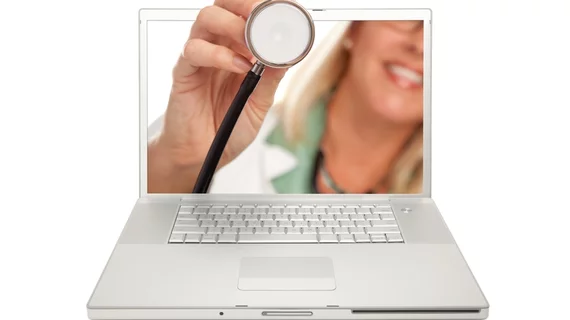Telehealth follow-ups aid communication between patients, physicians
Following up with heart patients via computer or smartphone helped facilitate communication between patients, families and care teams in a small-scale study out of Children’s National Hospital in Washington, D.C.
The trial, led by senior author Ashraf Harahsheh, MD, a cardiologist at Children’s National, is slated for presentation at the American Heart Association’s annual Scientific Sessions in Philadelphia Nov. 17. It was a virtual visit pilot study that recruited patients with previously established hyperlipidemia, hypercholesterolemia or syncope, as well as patients who needed to discuss cardiac testing results.
“We’ve used telemedicine in pediatric cardiology for physician-to-physician communications for years at Children’s National, thanks to cardiologists like Dr. Craig Sable,” Harahsheh said in a release. Sable is the associate chief of cardiology at the hospital.
“But this is the first time we’ve really had the appropriate technology to speak directly to patients and their families in their homes instead of requiring an in-person visit.”
The team’s retrospective sample included 18 families who were open to virtual visits as a follow-up option between 2016 and 2019. Six months after their virtual visits, none of the patients reported an urgent cardiology issue.
A good portion of patients in the study—39%—had additional in-person cardiology appointments, but Harahsheh et al. said none of those appointments were the result of a deficiency in virtual visits.
“There are many more questions to be answered about how best to appropriately use technology advances that allow us to see and hear our patients without requiring them to travel a great distance," Harahsheh said. “But my team and I were encouraged by the results of our small study, and by the anecdotal positive reviews from families who participated. We’re looking forward to determining how we can successfully and cost-effectively implement these approaches as additional options for our families to get the care they need.”

